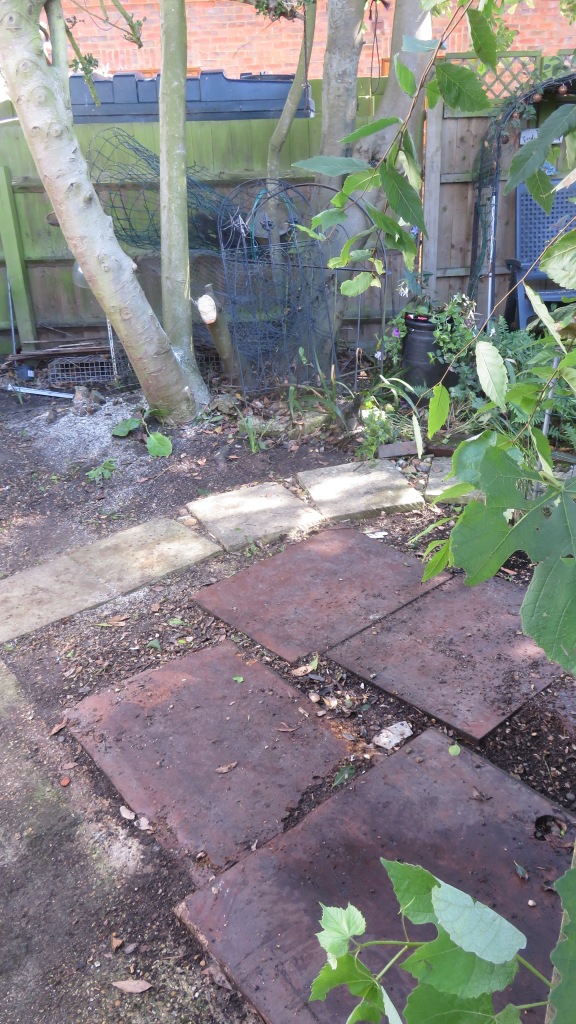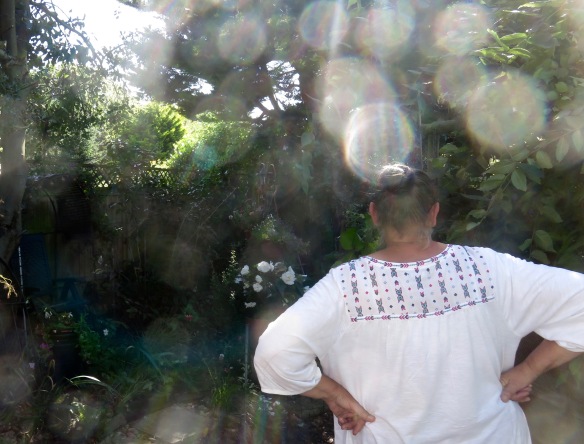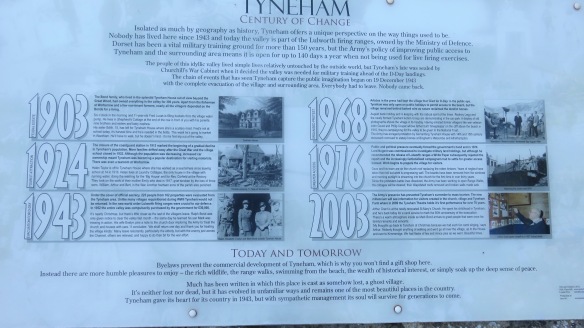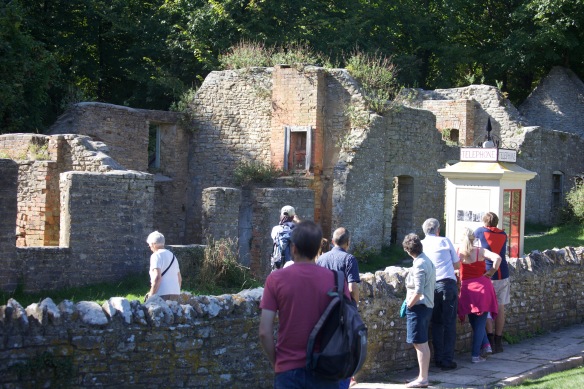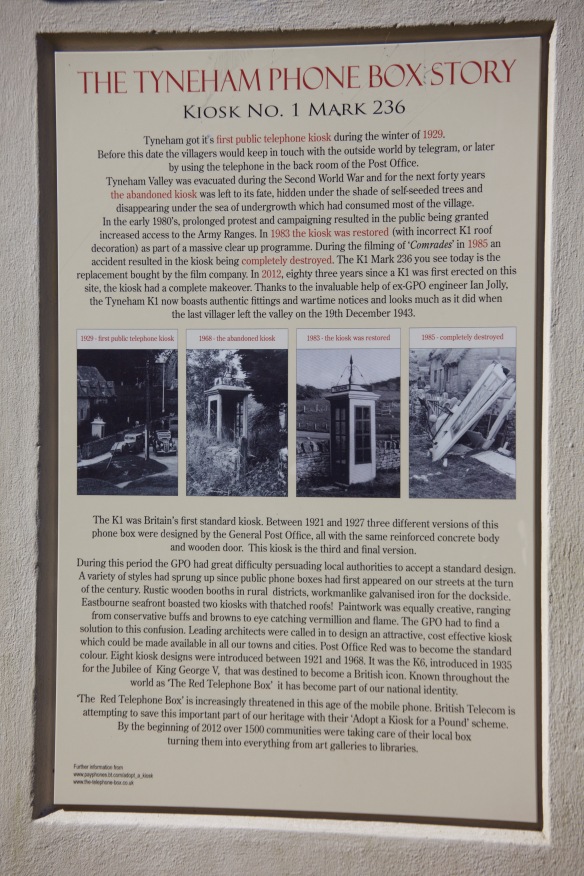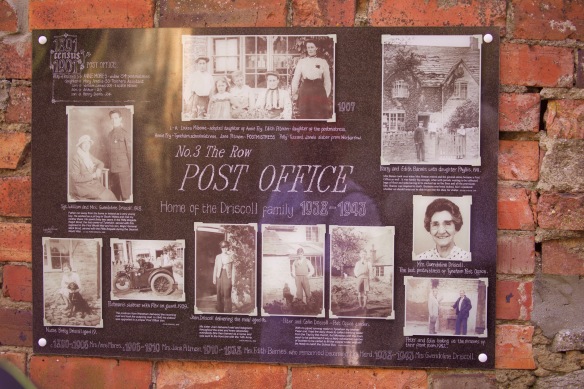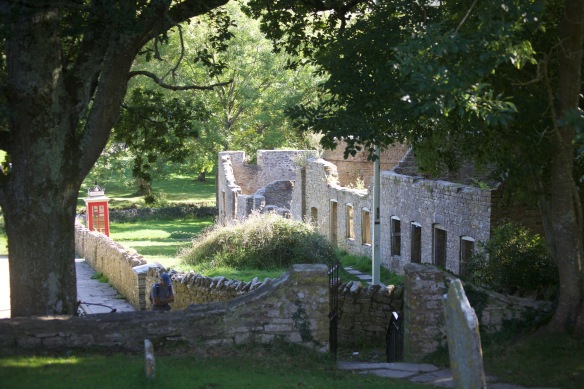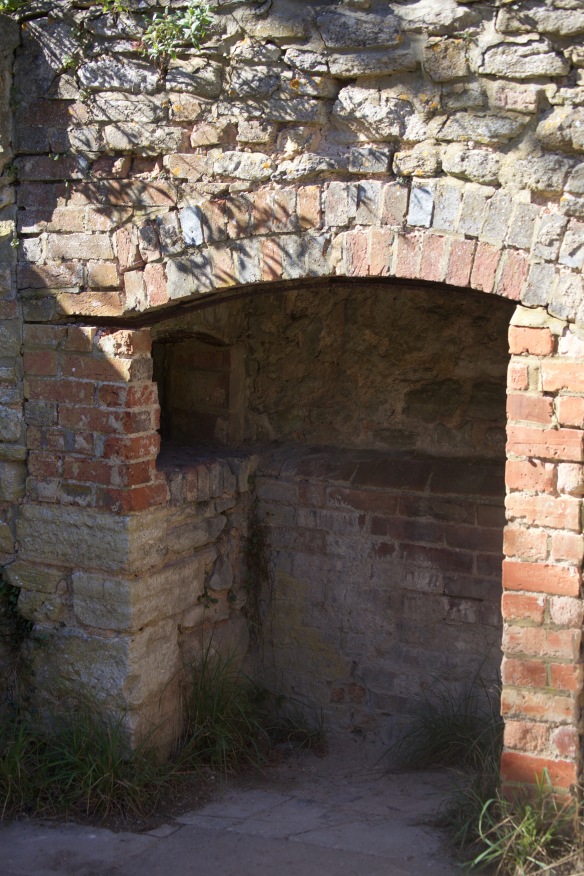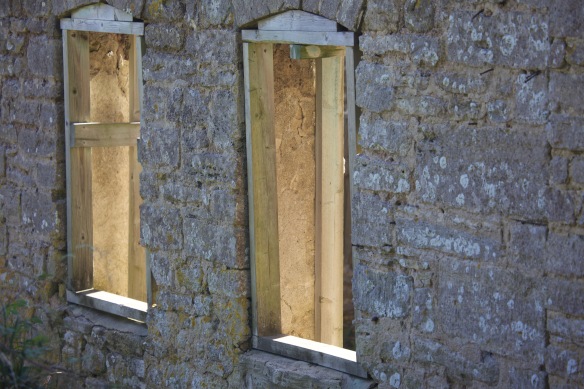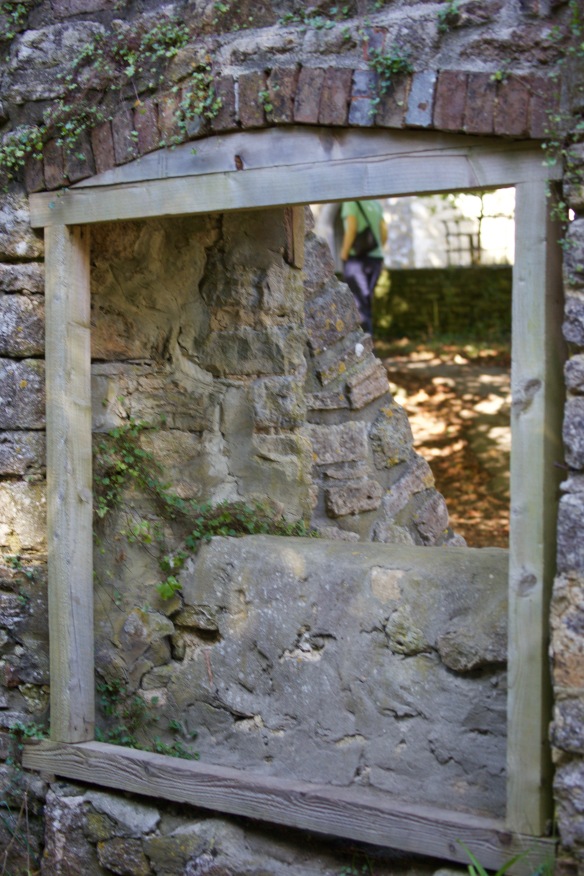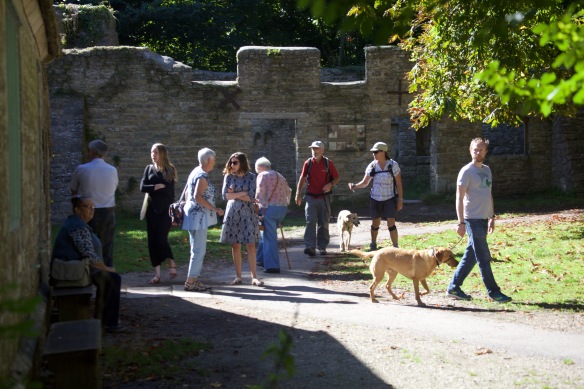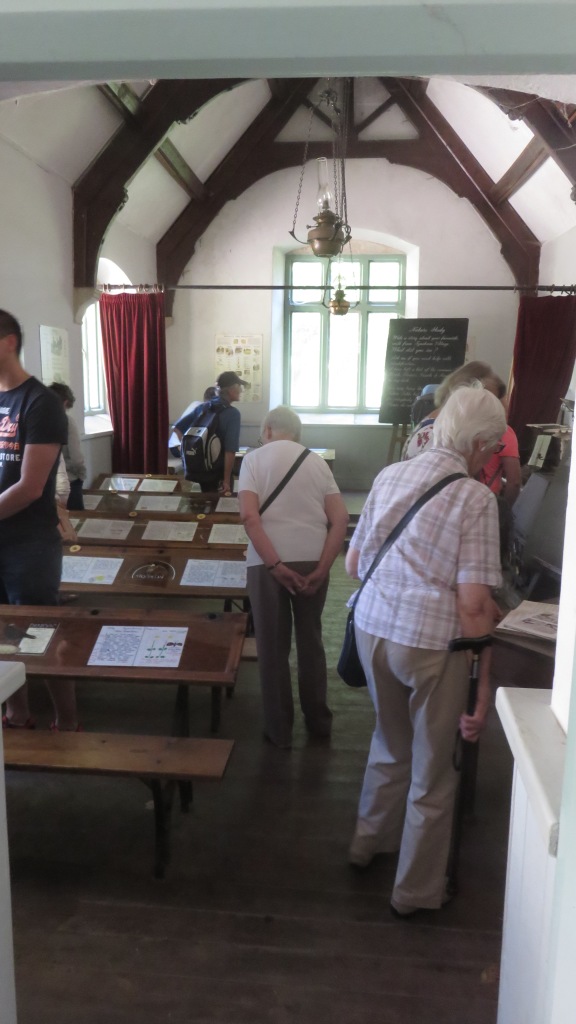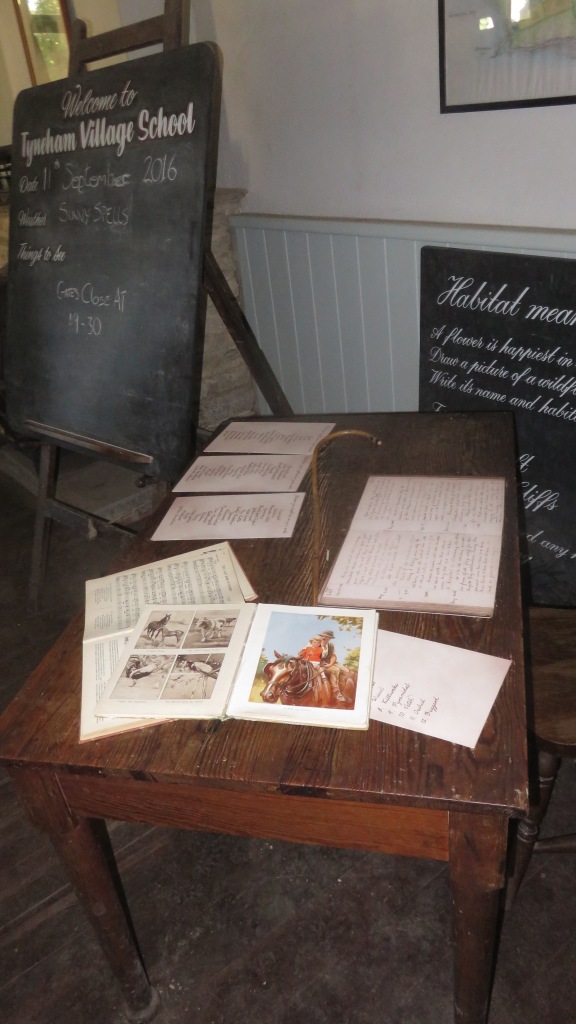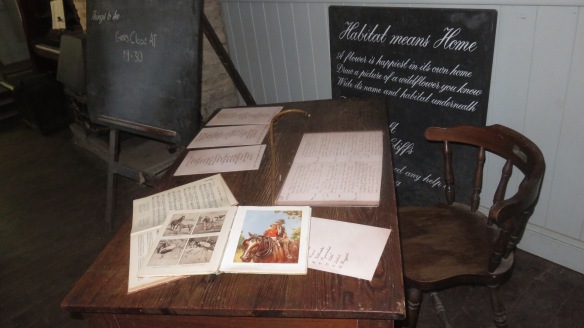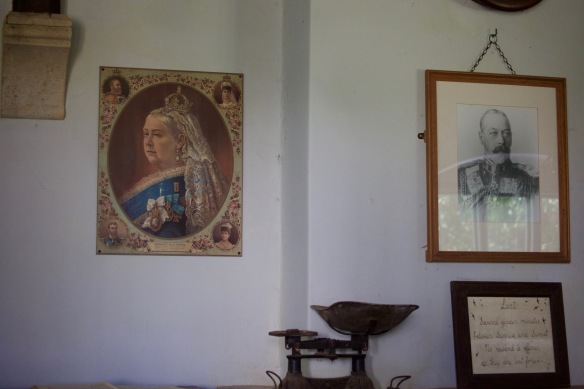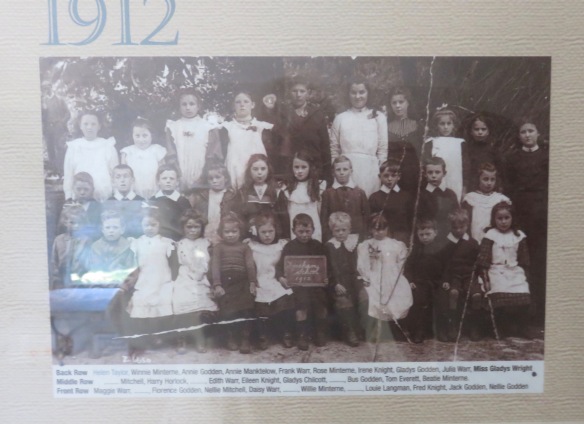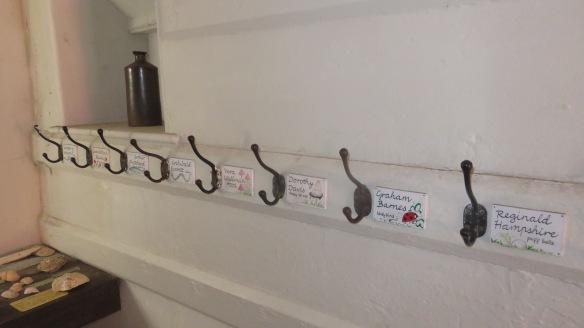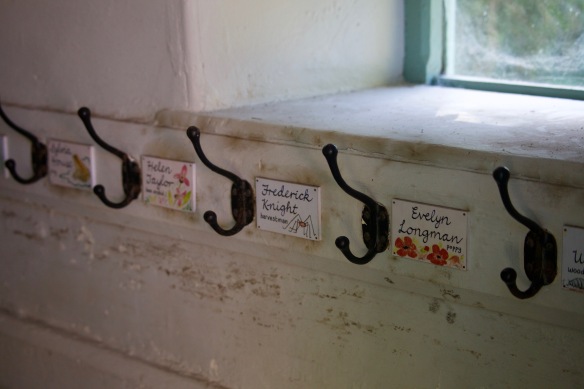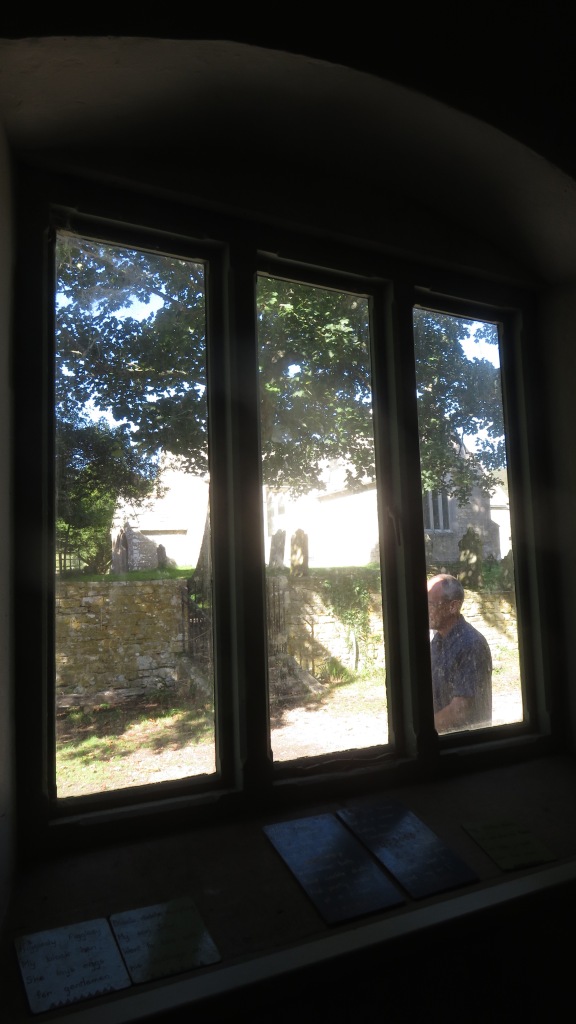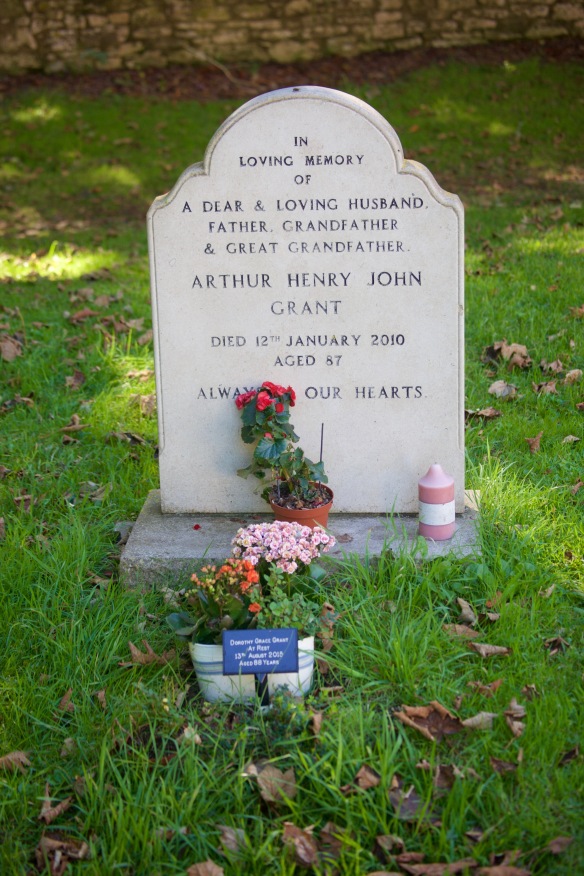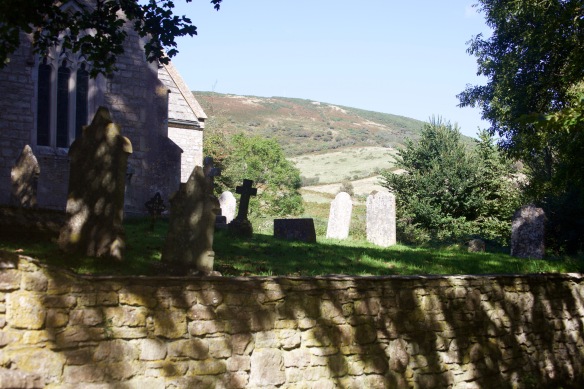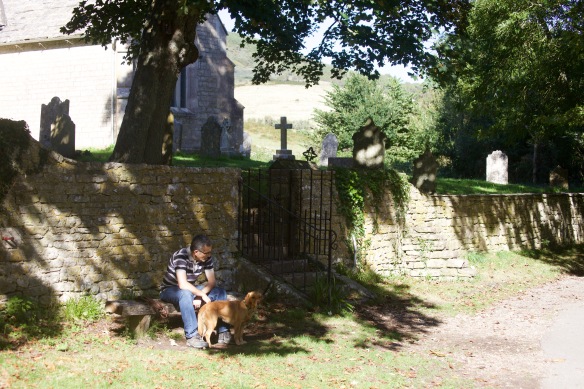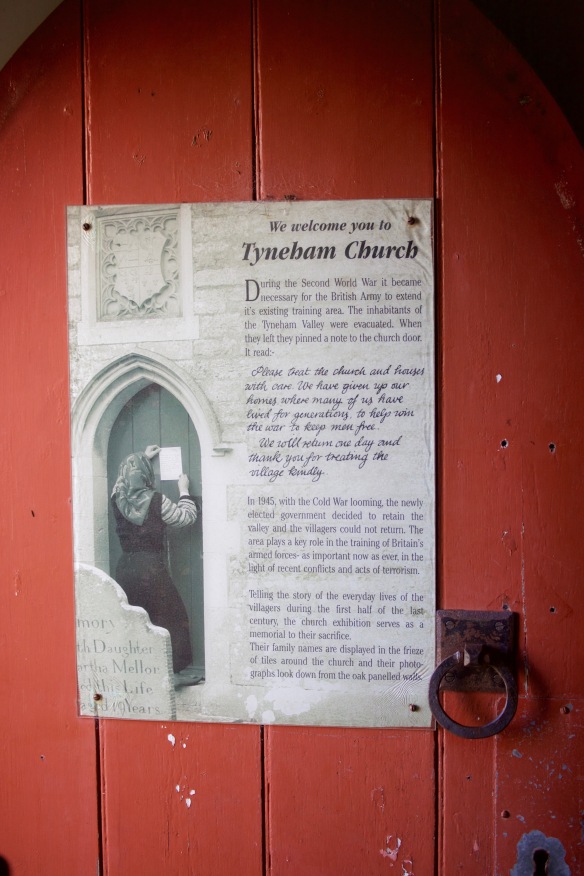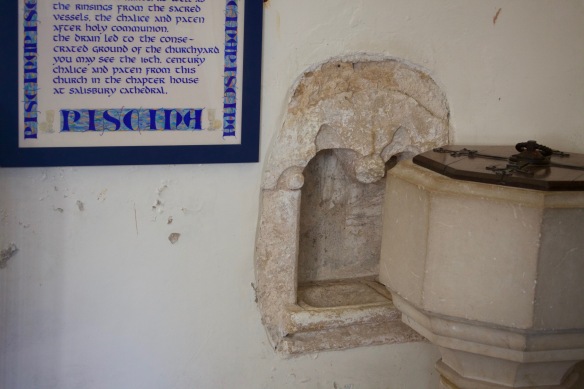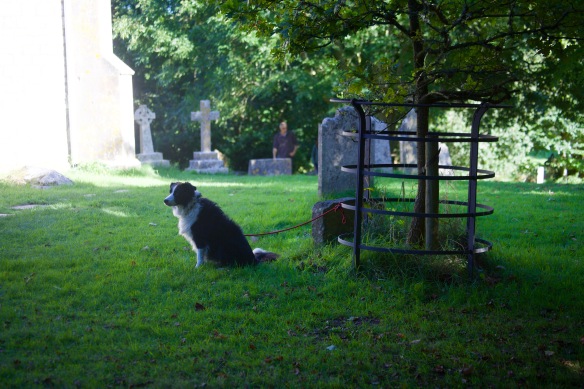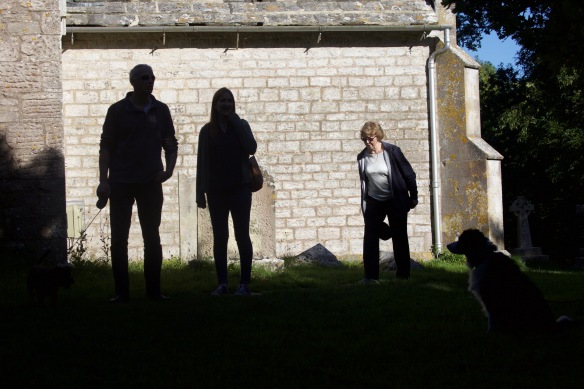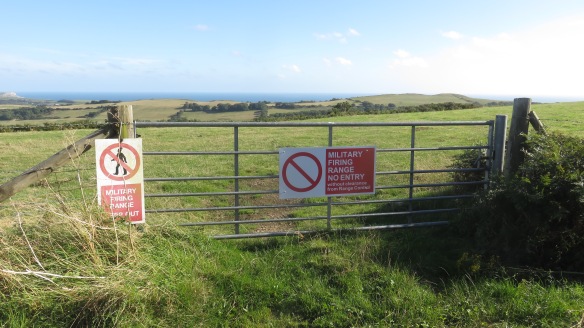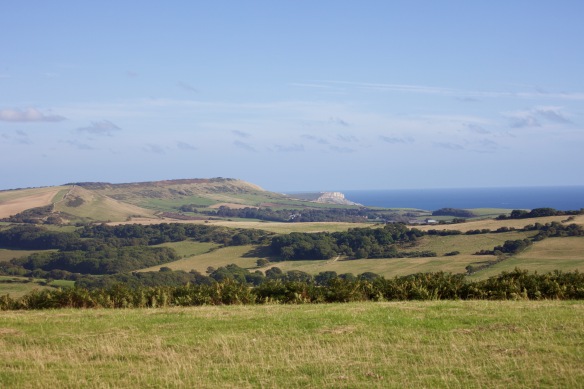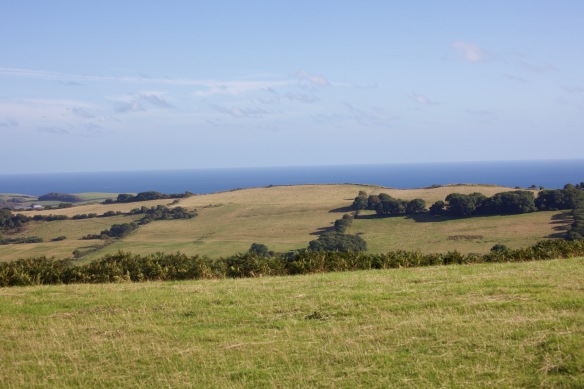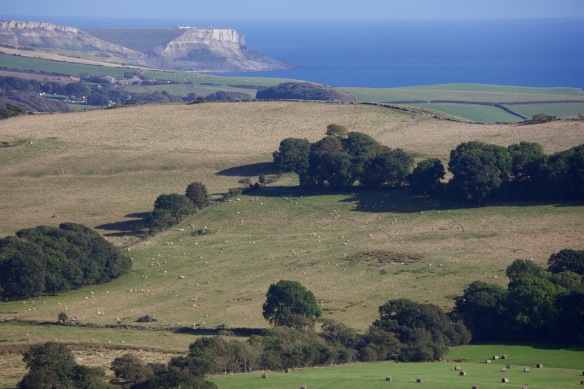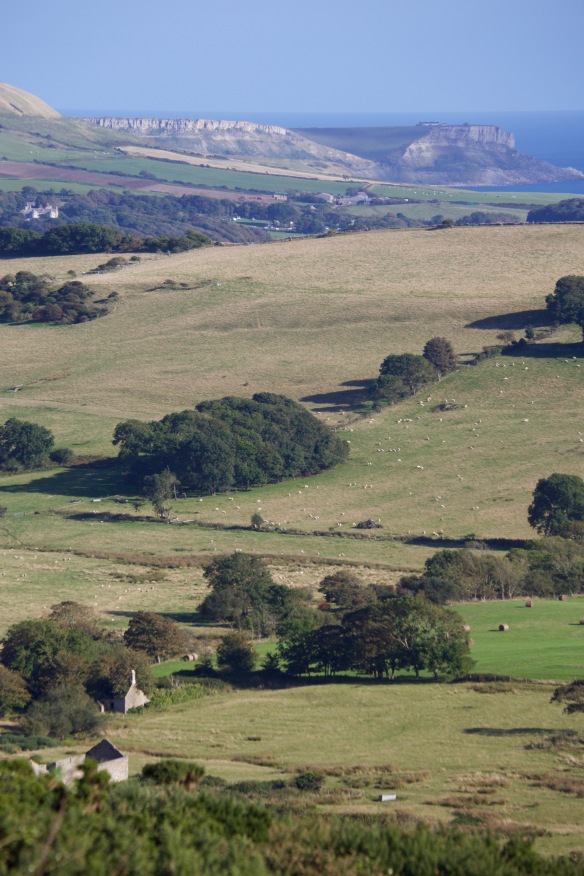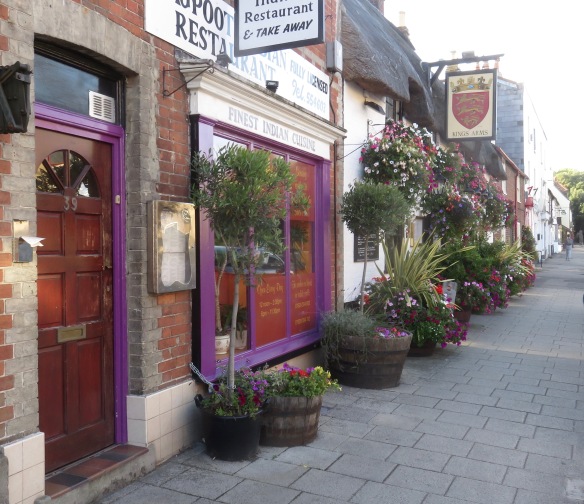CLICK ON IMAGES TO ENLARGE. REPEAT IF REQUIRED.
This morning, Aaron and Sean cleared space for the anticipated greenhouse. Holly and Bay trees were cut back and Jackie’s old work corner dismantled.
The sun danced over Jackie’s head as she contemplated the opening.
This afternoon Jackie drove us to Tyneham in Dorset and back.
Now uninhabited for the last 73 years, Tyneham was a thriving village from a previous age, until the villagers were ordered to leave their homes as part of the war effort in 1943. They were never allowed back. Today the remnants of this community were swarming with visitors.
The story of its century of change is fixed to a wall near the telephone box. All will become clear when this photograph is enlarged.
The replaced telephone box bears it own story,
as does the shell of the Post Office.
Most of the buildings are now ruined husks
revealing such as fireplaces,
and vacant windows fitted with stout wooden supports.
Exceptions are the school and the church. Jackie waits for me in the shadows outside
the schoolroom where there is a permanent exhibition. Here are the children’s desks.
The teacher’s faces down the classroom. Note the cane.
Queen Victoria and King George V hang on the wall.
The school photograph from 1912 features, third from right on the front row, Fred Knight.
We met a man who had worked with this former pupil some twenty years ago. Apparently, after Fred’s wife died, he often returned to the village to sit and think. In the second of these rows of coat hooks, young Frederick’s coat hanger is clearly labelled.
Did this lad and his classmates gaze through the schoolroom window and contemplate where they may be laid to rest one day? If so, this was not to be.
One gentleman who had grown up in Tyneham did come back to be buried there in 2010, to be joined by his wife five years later.
Beyond the churchyard, as from anywhere else in the village, can be seen the Purbeck Hills.
The Century of Change board pictured above tells us that it is Evelyn Bond who pinned the notice to the church door on the day the village died.
Priests first washed their hands in the piscina behind the font more than 700 years ago.
With their own little dog straining at the leash, a couple ascended the slope beyond this tethered collie
which was unperturbed as they loomed into silhouette.
Beyond the Military Firing Range on Povington Hill
we can see how close the sea is to the low-lying village. If you examine these pictures carefully, you should be able to distinguish between hay bales and sheep in the fields.
As we approached Wareham on our return journey it became apparent that the road home was very busy. There was therefore only one course of action.
We turned off into this very attractive town and sought out The Rajpoot Indian restaurant. It was not yet open, so we dropped intoThe King’s Arms next door for drinks. The restaurant itself was first class. I enjoyed king prawn naga, as Jackie did her chicken shashlick. We shared the chef’s secret spice rice, an egg paratha, and an onion bahji. We drank small bottles of Kingfisher.
